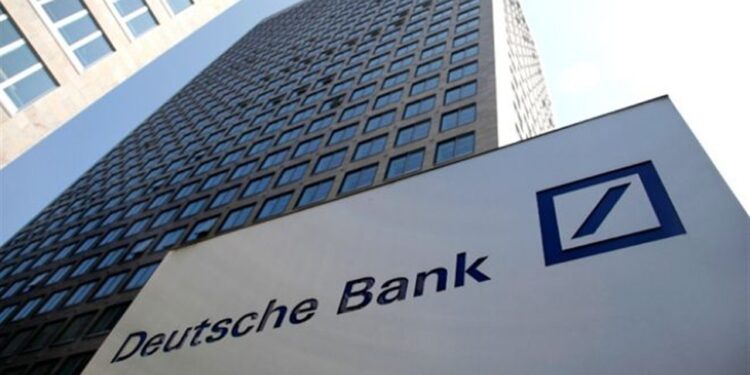Deutsche Bank saw its shares rise on Wednesday after the financial institution exceeded expectations in its thirteenth consecutive profitable quarter. The bank also announced plans to increase and accelerate shareholder pay-outs, leading to a positive market response.
For the third quarter of 2023, Deutsche Bank reported a net profit of €1.031 billion ($1.06 billion), surpassing analyst consensus expectations. The consensus had projected quarterly net profit attributable to shareholders at €997 million, according to data from the London Stock Exchange Group (LSEG).
The announcement led to a 7% increase in the bank’s shares as of 8:33 a.m. London time.
While the third-quarter net profit marked an 8% decrease compared to the previous year, it represented a significant 35% increase compared to the previous quarter. The decline from the prior year was primarily attributed to ongoing challenges in the bank’s investment unit.
In the same period in 2022, Deutsche Bank recorded a net profit of €1.115 billion, benefiting from higher interest rates and increased market volatility that boosted its fixed income and currencies trading business.
The bank also disclosed expectations of full-year revenues around €29 billion, which is at the top end of previous estimates. Additionally, Deutsche Bank highlighted its ability to release up to an additional €3 billion in capital and plans to enhance shareholder distributions.
Deutsche Bank’s corporate banking business experienced strong performance, with revenues increasing by 21% year-on-year to €1.89 billion. This growth was driven by the higher interest rate environment.
However, the bank continued to face challenges in its investment arm, with net revenues falling by 4% year-on-year to €2.27 billion. In the first nine months of the year, the investment arm’s net revenues were down by 12%, totaling €7.3 billion.
Deutsche Bank’s Chief Financial Officer, James von Moltke, explained that the performance of the investment banking unit was in line with the market on an underlying basis. He noted that fixed income and currency revenues had normalized compared to the previous year, particularly in the macro businesses, which had benefitted from high volatility.
Von Moltke highlighted a shift in the bank’s focus to other products, notably credit and financing, which have shown strength.
Additional highlights for the quarter included total revenues of €7.13 billion, an increase from €6.92 billion in the third quarter of 2022. The provision for credit losses was €200 million, compared to €350 million in the same quarter of the previous year. The common equity tier one (CET1) capital ratio, a measure of financial resilience, stood at 13.9%, up from 13.8% at the end of the second quarter and 13.3% in the third quarter of 2022. Return on tangible equity reached 7.3%, an improvement from 5.4% in the previous quarter.
Analysts at UBS acknowledged that Deutsche Bank had made significant progress in terms of capital and demonstrated robust operational performance. They noted that the pre-tax profit of €1.723 billion was 9% higher than the consensus had anticipated.
While Deutsche Bank has achieved positive results, the institution continues to face various challenges, including a weakening European business environment, macroeconomic uncertainty, and IT issues at two of its retail units.
The bank’s ability to navigate these challenges while delivering consistent profitability demonstrates its resilience in a dynamic financial landscape.









